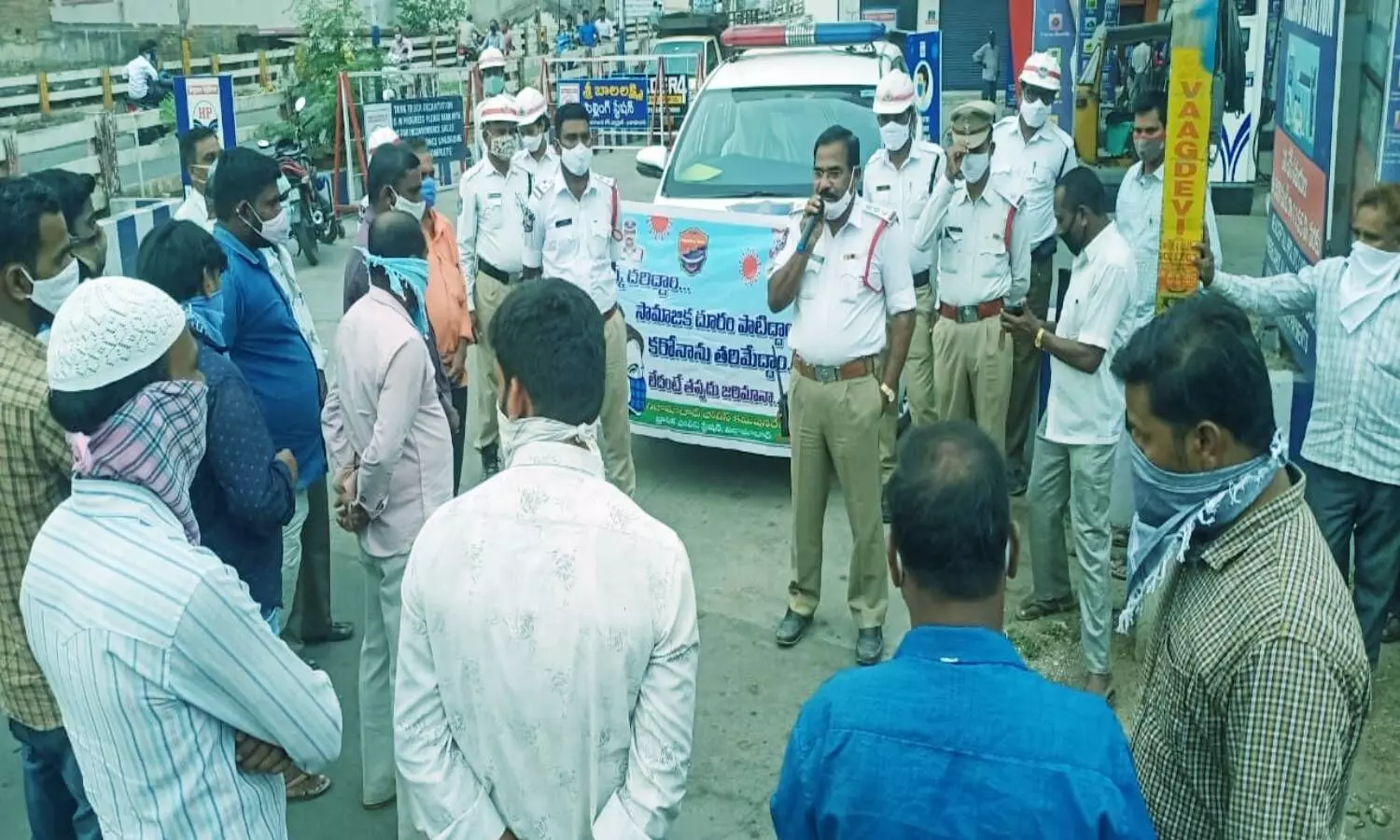How Nizamabad is trying to prevent COVID spillover from Maha
Nizamabad, which borders Maharashtra, has become the worst-affected COVID district in rural Telangana.
By Sumit Jha
Nizamabad, which borders Maharashtra, has become the worst-affected COVID district in rural Telangana.
The district has reported 1,041 positive cases in the last week. Besides, urban centers in and around Hyderabad have become major COVID hotspots. Nirmal and Jagtial districts are also reporting around 100 cases every day.
Telangana health minister Eatala Rajender said the sudden increase in the number of new positive cases in the state was because of travelers from Maharashtra.
Maharashtra is the worst-hit state in the country with the highest number of active COVID-19 cases.
"About 60 percent of cases in the country are from Maharashtra alone. Due to the lockdown in many cities of Maharashtra, migrants from Telangana are returning home and those infected persons are turning out to be super spreaders. The districts that share a border with Maharashtra are on high alert and officials have been asked to be vigilant," he said.
Sensing trouble, Nizamabad district administration has set-up check posts along the border allowing only those people who carry RT-PCR negative certificates at a few of these checkposts. Besides, Rapid Antigen Test (RAT) is also being conducted on the people entering the state. Some of the villages are voluntarily implementing lockdowns.
Despite Nizamabad witnessing an increase in COVID-19 cases, the district administration has not sealed the borders. "We have screened every person entering through our border. We are checking the temperatures of people. If some people have symptoms, we conduct Rapid Antigen Tests," said C. Narayana Reddy, Nizamabad district collector.
Measures to handle the second wave of COVID-19
After a surge in cases, the district administration has involved every major department to tackle COVID-19. "Earlier, it was only the medical and health department that was involved in tackling the pandemic, but now we have involved police, panchayat, revenue, and municipal departments," said Narayana Reddy.
The district administration has set up mandal as well as village-level committees. They have been entrusted with three major works:
1. Testing, Tracing, and Treating
The district administration, with the help of the committees, is trying to test every suspected person. "If the person tests positive, we trace the primary contacts, test them, and ask them to quarantine themselves," said Narayana Reddy.
2. Enforcement of COVID-19 norms
The district collector said that these teams ensure that each person wears a mask and maintains physical distance. "In each municipality, we have formed special teams headed by a sub-inspector. Each team has been given a vehicle," he said.
On Friday, the enforcement team penalized 36 people for not following the guidelines in four municipalities.
3. Focusing on vaccination
Each primary health center and community health center has been given a target to vaccinate 125 and 200 citizens every day.
"At the same time, the district-level medical team is focusing on treatment. We have nine private hospitals and three government hospitals that have been converted into semi-COVID hospitals. We are confident that we can handle the situation," Narayana Reddy said.
Border checks
With many people returning from Maharashtra, the district administration has set up COVID-19 centers at the border.
It is screening and testing people at railway stations and bus stops. "Many of them are asymptomatic. We are also cross-checking RT-PCR tests. There is 10-15 percent variation between RAT and RT PCR," said Narayana Reddy.
He said that hospitals are ready to handle the situation. However, out of nine private hospitals in the district, two don't have ICU beds for COVID-19 patients and a few private hospitals are running out of beds.